Google Cloud’s AI potential is finally convincing
Google Cloud now has a compelling and unique offering for enterprises after hitting the reset button a year into the AI arms race
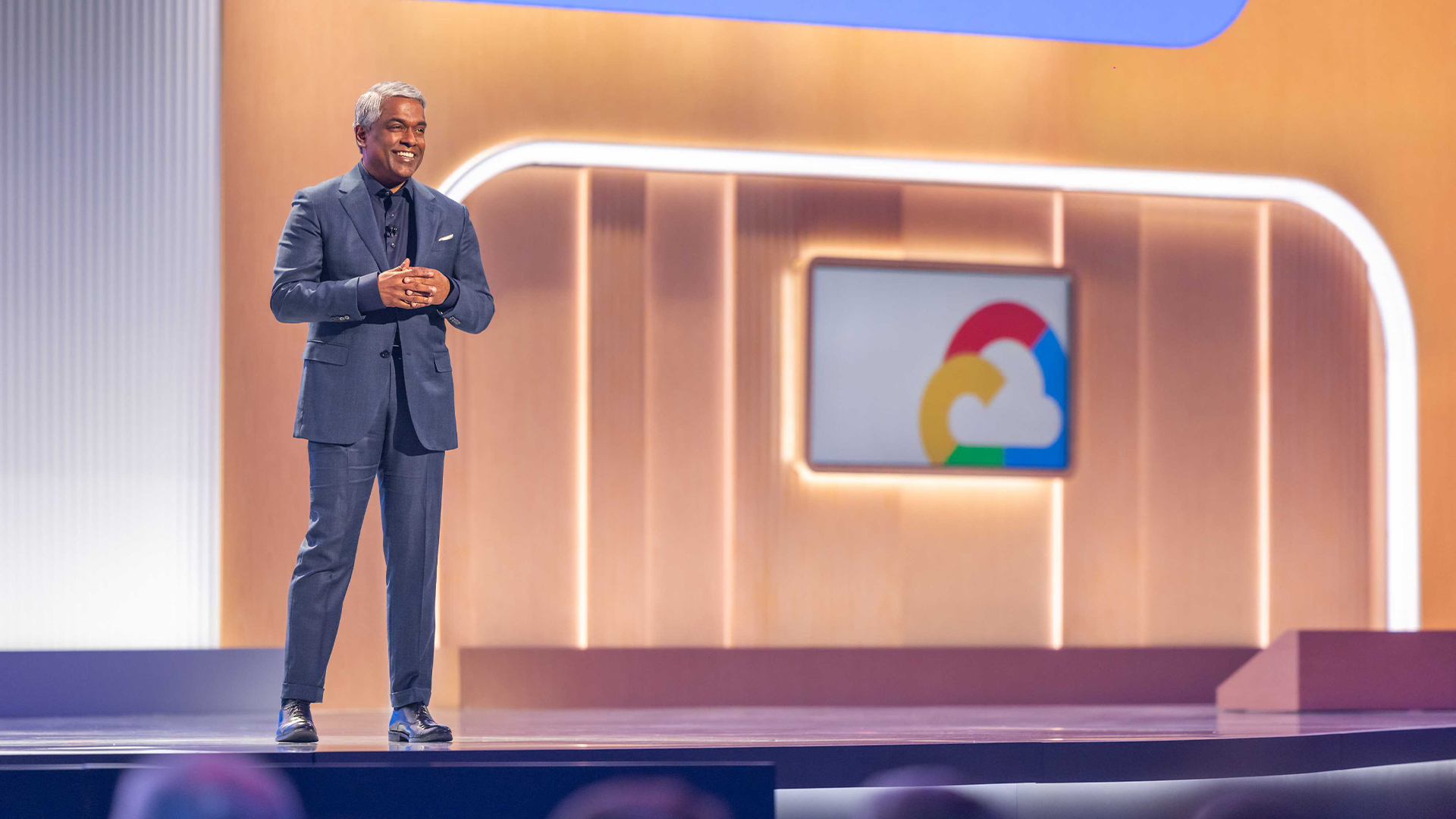

Google Cloud Next 2024 has drawn to a close and it’s hard to see this year’s event as anything other than a hugely confident rally for the firm. The largest conference Google Cloud has ever hosted, with around 30,000 people in attendance, it may also go down as the most consequential for the company’s trajectory.
It’s been as breathless a week as all that sounds, with Google Cloud dropping a veritable feast of announcements on day one with the lion’s share connected directly to generative AI.
Gemini 1.5 Pro was one of the big focuses of this year’s event and with very good reason. The model’s two main tricks are its multimodality and its mammoth one million token context window. We’re oversaturated with AI benchmarks and features these days, so it’s important to take a step back and appreciate the level at which Gemini 1.5 Pro operates.
We’ve seen multimodality before, most notably with OpenAI’s GPT-4, but never at this scale. In practice, it means the model can handle a good deal of what any business could feasibly throw at it. Keynote examples of what Gemini 1.5 Pro can absorb in a single prompt include every PDF on compliance within an organisation, a company’s entire codebase, and the video and audio of the entire day-two keynote.
Nothing else on the market offers anything like this. OpenAI’s flagship model GPT-4 Turbo can handle 128k tokens at once while Claude 3 Opus, Anthropic’s best model, is available with a 200k context window and is technically capable of one million upon request. But with no general release for this in sight, Google’s claim of being the first in the market to offer inputs at this scale holds up.
Gemini is used to power Google Cloud’s new Vertex AI Agents, which fill a role to play in the burgeoning ‘AI economy’ similar to Microsoft Copilot. But with the level of customization Google Cloud is promising its customers — each agent can be trained or fine-tuned using an enterprise's own private data — it seems locked on that if a task needs doing, Google Cloud wants to help customers do it with AI.
The most canny part of the company’s messaging throughout the conference has been its insistence on paving the way for businesses, not prescribing the journey. In this approach, we’re finally seeing Google use its unique strengths to press its advantage in the AI space.
Get the ITPro daily newsletter
Sign up today and you will receive a free copy of our Future Focus 2025 report - the leading guidance on AI, cybersecurity and other IT challenges as per 700+ senior executives
Take the newly-announced ability to ‘ground’ AI outputs using results from Google Search, addressing the issue of hallucinations by leaning on its search engine prestige and extant search architecture.
Just eight months on from Google Cloud Next 2023, and there’s every indication that Google Cloud has consolidated its market strengths and come back swinging against the likes of Azure and AWS.
Google Cloud moves past the Bard fiasco
The success of Google Cloud Next 2024 stands out all the more given Google’s stop-start approach to competing in the AI space throughout the past year. It’s not entirely fair to call this a fresh start for Google Cloud. Many of its flagship announcements at this year’s conference build off the back of older products; Gemini Code Assist was formerly known as Duet AI for Developers, for example.
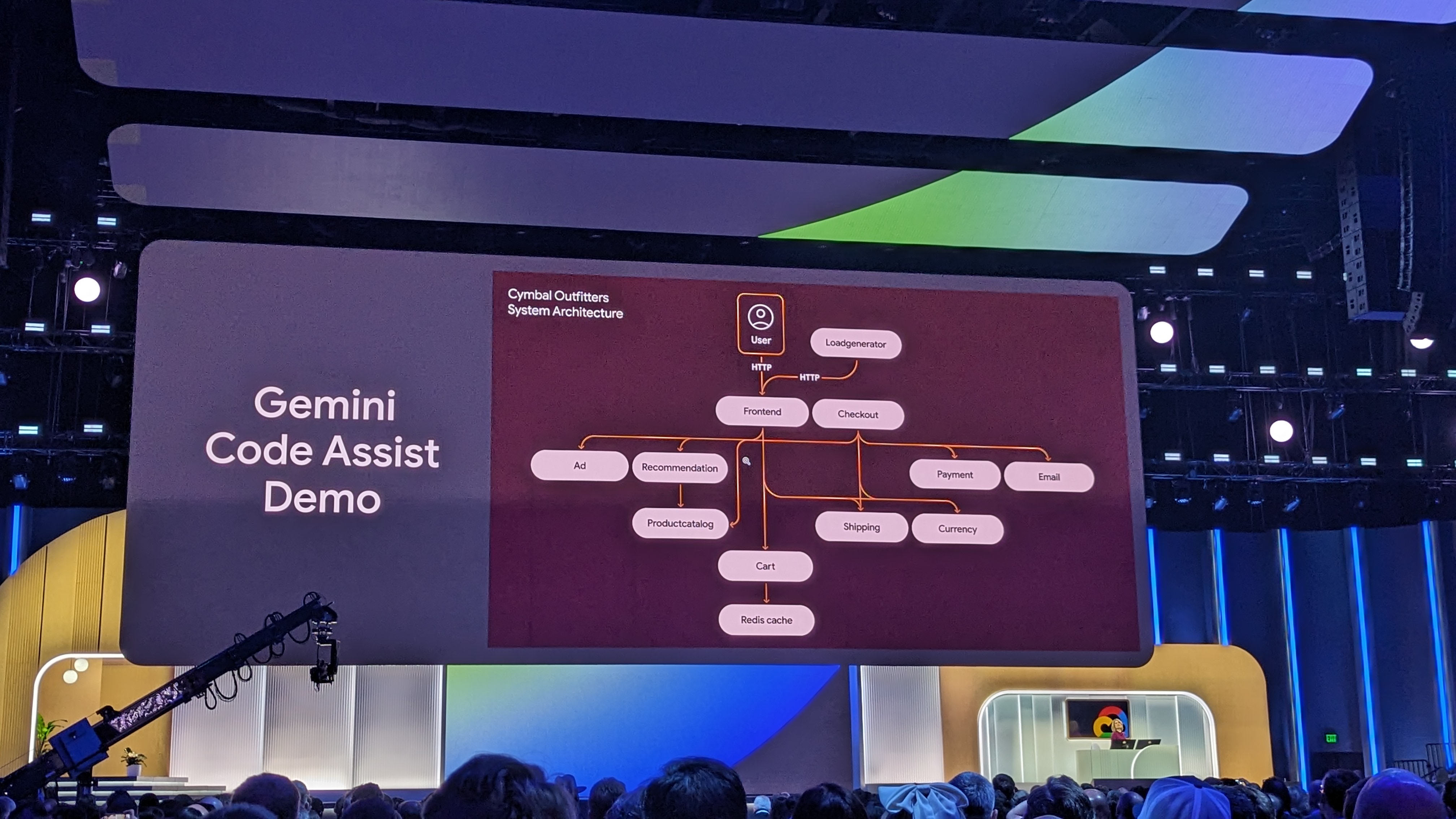
Gemini Code Assist could be a key differentiator for Google Cloud
But the company’s position now is a far cry from where it was in February 2023, reeling from a less-than-stellar Bard launch after reportedly scrambling to speed up internal AI development to respond to ChatGPT’s meteoric rise to power.
In conversation with ITPro, Darren Mowry, MD for AI startups at Google Cloud, acknowledged the highs and lows of the “rocky and interesting 12 to 18 months” Google Cloud has experienced, but added that despite any missteps the firm is in an incredibly competitive position.
"I’m willing to take that punch in that jaw 18 months ago because it did, I think, enliven and kind of motivate a level of innovation in Google that we're now seeing come to life,” said Mowry.
Mistakes often spur a company to action; Google Cloud’s wobble with Bard has inspired it to take a ‘moonshot’ footing. In this context, the name ‘Gemini’ is especially fitting – one wonders whether Google’s next flagship model will bear the name ‘Apollo’.
RELATED WHITEPAPER
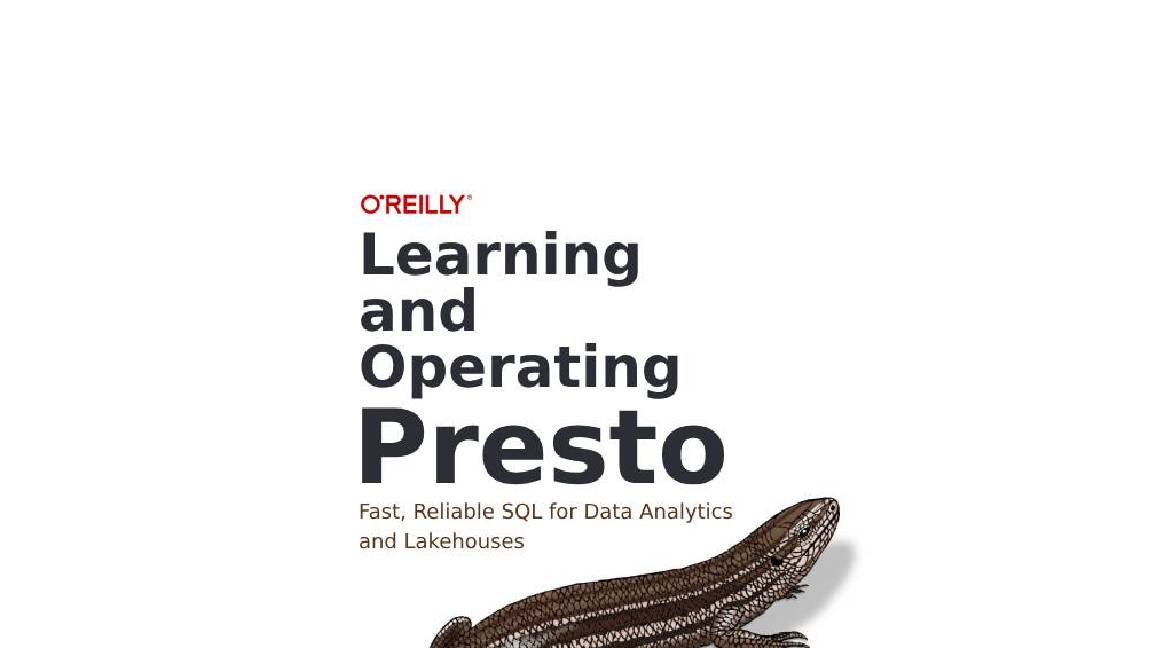
Having since engaged in a Gemini rebrand to ditch the ‘Bard’ and ‘Duet AI’ names altogether, there’s a sense that Google Cloud has spent several months looking in the mirror in preparation for this new united front. The hyperscaler may have been an AI laggard in 2023, at least compared to others, but that’s no longer the case.
Speaking to assembled media, Nenshad Bardoliwalla, director of product management for Vertex AI, rejected the idea that Google Cloud has been slow to match the capabilities of its competitors and emphasized the “exceedingly careful” and “deliberate” approach to features that carry specific risks.
“Sundar likes to say that Google's approach to AI is ‘bold and responsible’,” Bardoliwalla said.
“So I have known for, I don't know, nine months that we can process audio. But we are not going to put it into the world unless we know that it is not going to have more harmful effects than good effects.”
Throwing access to AI wide open
A core pillar of Google Cloud Next 2024 was customer choice. At every turn, throughout keynotes, roundtables, or in the announcements themselves, the firm restated its goal of giving customers a real variety of AI models via the Vertex AI platform.
“When customers go from a proof of concept to production and they’re using something across their organization, they want to standardize on the platform and have a choice of models,” Kurian said.
“Imagine you went to a grocery store and you only had one product, in one category. You could never cook a meal with it. If you were going to just have a proof of concept that might work but if you want to deploy it organization-wide, you want all the choice that you’d get in a grocery store.
“I’d say that’s the heart of the difference in what we’re doing versus the competition. We are vertically optimized – most competitors would say ‘we are vertically integrated’, because the only way they think about it is a closed system.”
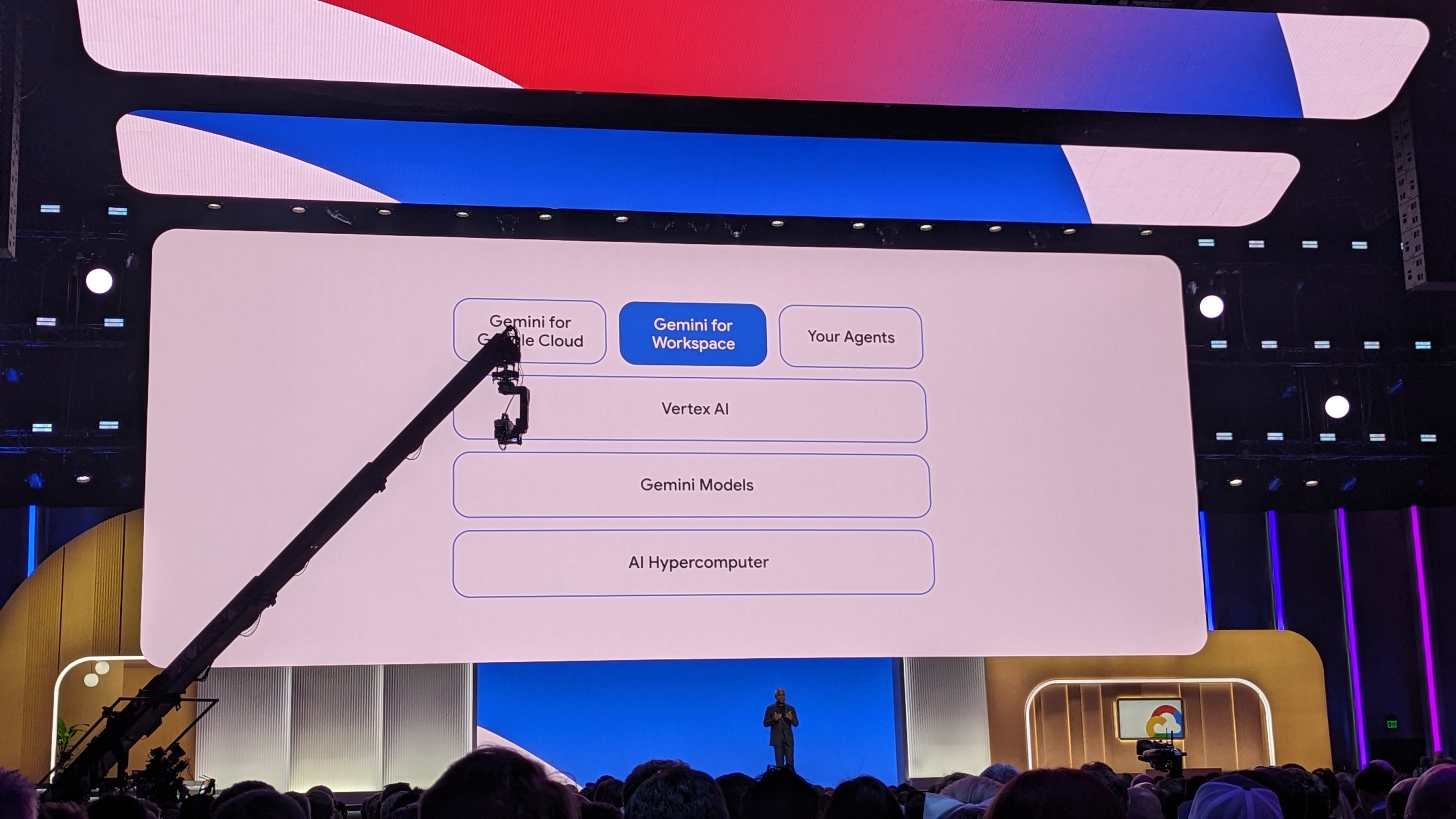
Adding that Google Cloud is standardizing customers across its platform by giving them more choice, Kurian noted he’s spoken to customers who are using Gemini and Vertex together with third-party models like Anthropic’s Claude or Meta’s Llama 2.
The widespread infrastructure announcements made on day one of the conference link into this, as they're all about giving customers a range of hardware choices depending on their needs.
This is another example of where Google Cloud’s internal change of tack on AI has resulted in an absolute win for the firm. While Microsoft becomes increasingly reliant on OpenAI, Google Cloud has changed the terms of success. It aims to be the best platform on which customers can build AI, instead of trying to be the last word in AI development.
Let’s not brand the entire affair flawless, as some of the announcements made this week fall into the “wooly AI bubble” side of the chart. Take Imagen 2, Google DeepMind’s AI image generator, which can now produce four-second ‘live images’, somewhere between a GIF and a video clip.
This feels like a solution in search of a problem, and demonstrations of an AI agent being used to generate a fairly corny image of a tent at Machu Picchu are unlikely to have raised the pulse of Google Cloud’s customers.
But these AI extravagances come with the territory; if anything, the occasional odd duck in Google Cloud’s AI ecosystem only acts as proof that the firm is committed to giving its customers room to use AI in whatever way they need to.
Google Cloud has always had huge AI potential. Whether it’s the absolute market dominance of its search engine – and the profound data implications that carries – or the in-house expertise it’s had on AI for years, the firm has a laundry list of AI advantages. But for too long, it’s held its cards to its chest and let competitors define what AI in the cloud means.
That era is over. Now that it’s firing on all cylinders, Google Cloud’s competitors have every reason to worry.

Rory Bathgate is Features and Multimedia Editor at ITPro, overseeing all in-depth content and case studies. He can also be found co-hosting the ITPro Podcast with Jane McCallion, swapping a keyboard for a microphone to discuss the latest learnings with thought leaders from across the tech sector.
In his free time, Rory enjoys photography, video editing, and good science fiction. After graduating from the University of Kent with a BA in English and American Literature, Rory undertook an MA in Eighteenth-Century Studies at King’s College London. He joined ITPro in 2022 as a graduate, following four years in student journalism. You can contact Rory at rory.bathgate@futurenet.com or on LinkedIn.
-
 Should AI PCs be part of your next hardware refresh?
Should AI PCs be part of your next hardware refresh?AI PCs are fast becoming a business staple and a surefire way to future-proof your business
By Bobby Hellard Published
-
 Westcon-Comstor and Vectra AI launch brace of new channel initiatives
Westcon-Comstor and Vectra AI launch brace of new channel initiativesNews Westcon-Comstor and Vectra AI have announced the launch of two new channel growth initiatives focused on the managed security service provider (MSSP) space and AWS Marketplace.
By Daniel Todd Published
-
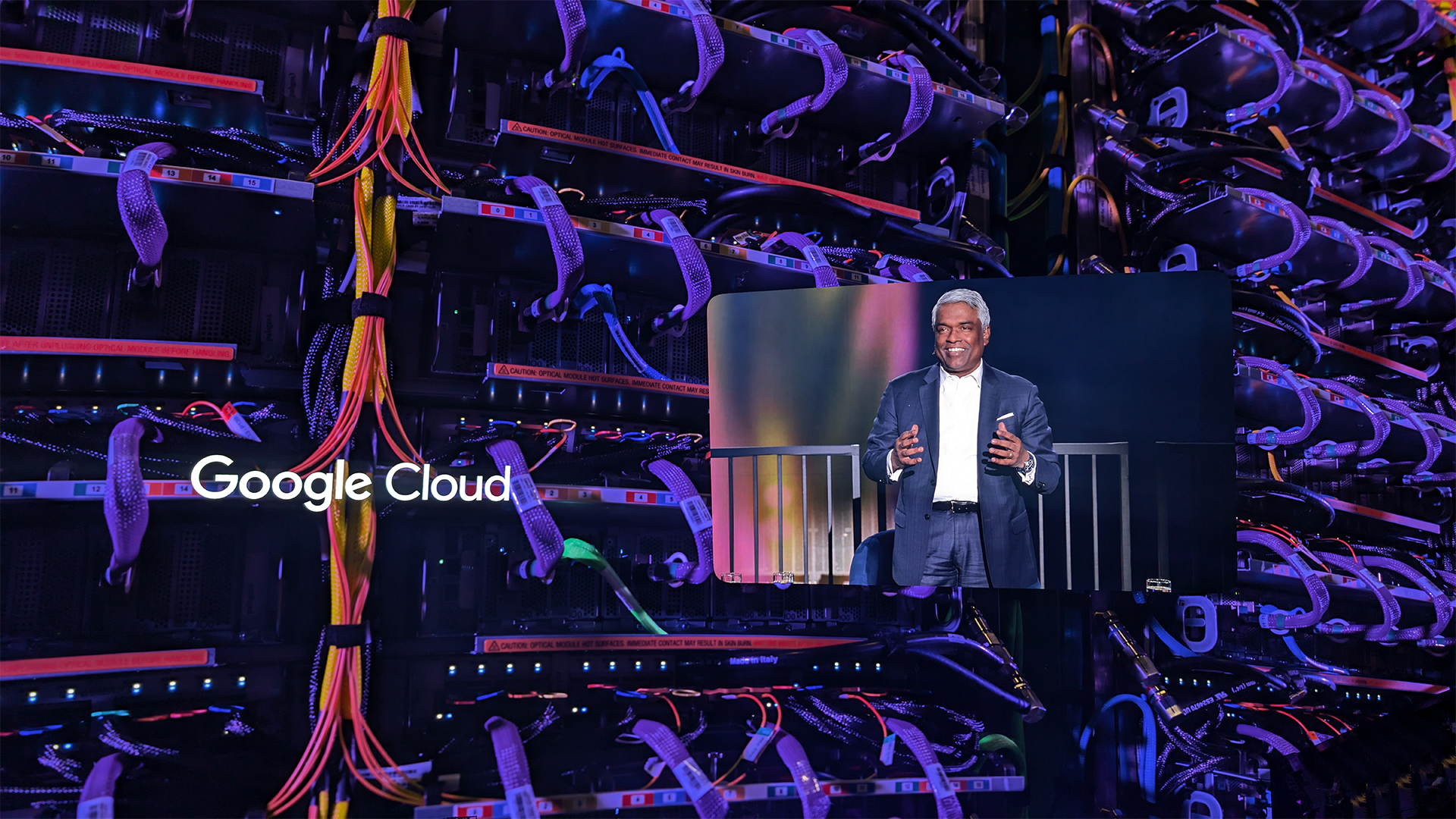 Google Cloud is leaning on all its strengths to support enterprise AI
Google Cloud is leaning on all its strengths to support enterprise AIAnalysis Google Cloud made a big statement at its annual conference last week, staking its claim as the go-to provider for enterprise AI adoption.
By Rory Bathgate Published
-
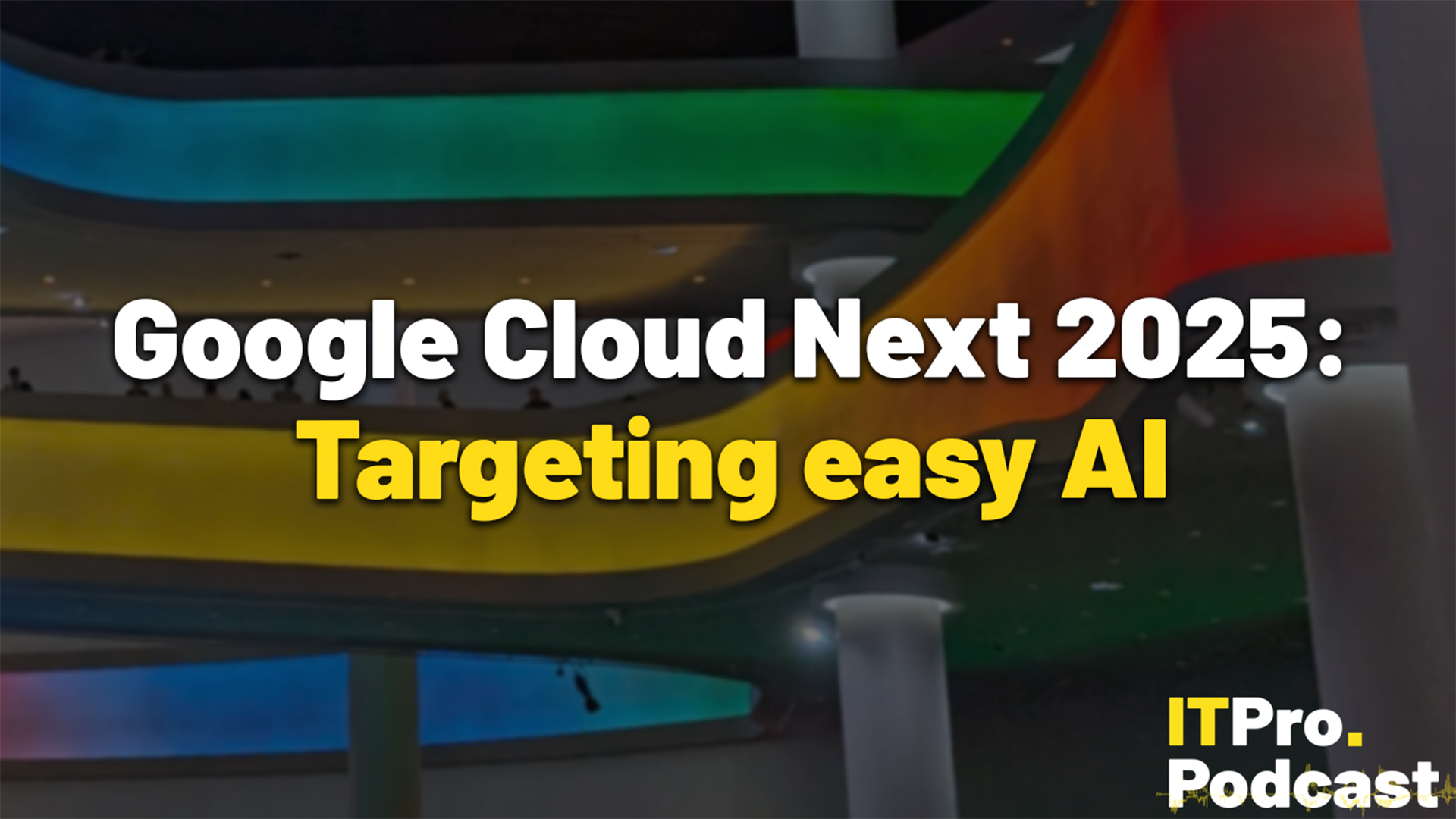 Google Cloud Next 2025: Targeting easy AI
Google Cloud Next 2025: Targeting easy AIITPro Podcast Throughout its annual event, Google Cloud has emphasized the importance of simple AI adoption for enterprises and flexibility across deployment
By Rory Bathgate Published
-
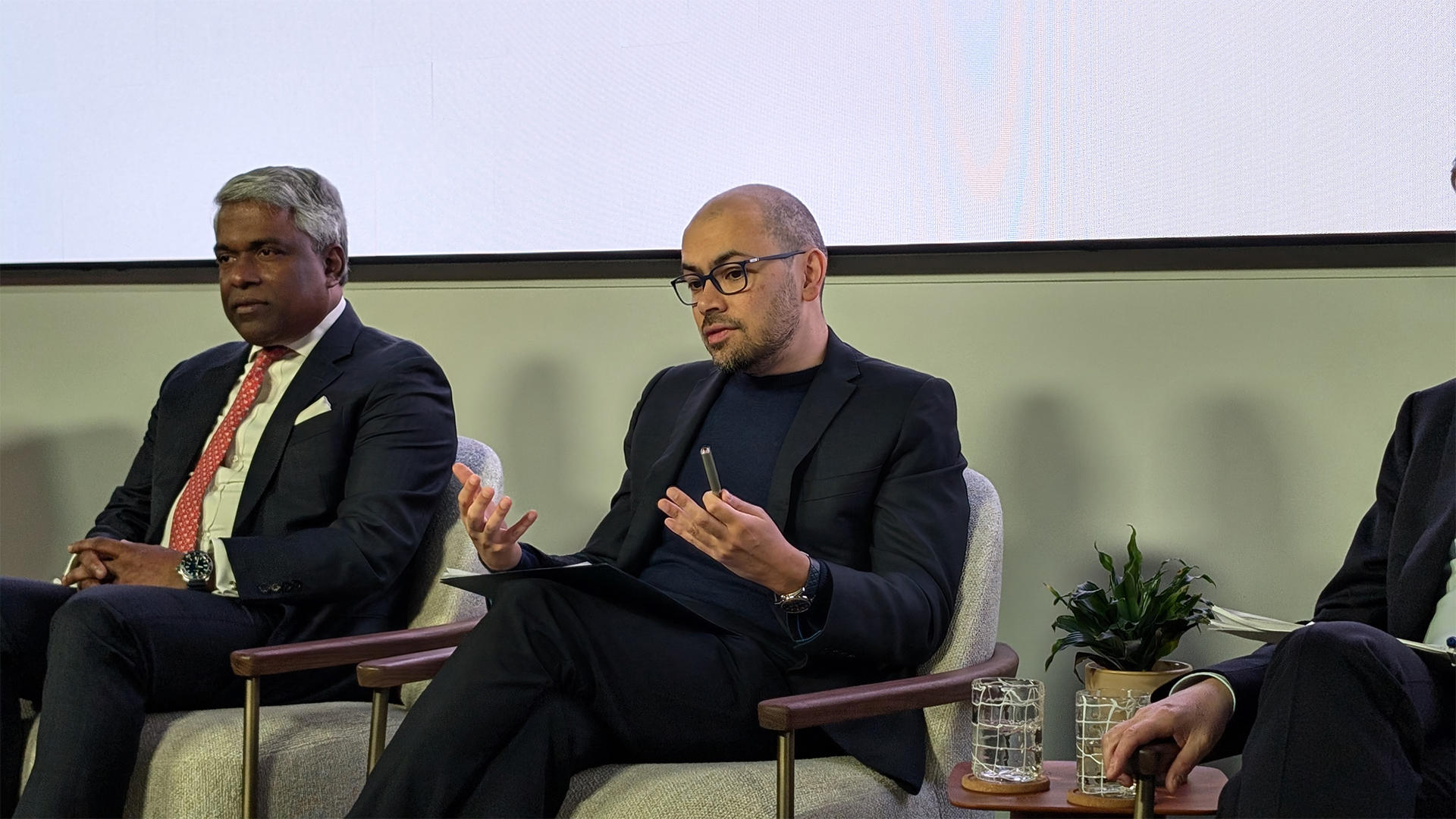 Google DeepMind’s Demis Hassabis says AI isn’t a ‘silver bullet’ – but within five to ten years its benefits will be undeniable
Google DeepMind’s Demis Hassabis says AI isn’t a ‘silver bullet’ – but within five to ten years its benefits will be undeniableNews Demis Hassabis, CEO at Google DeepMind and one of the UK’s most prominent voices on AI, says AI will bring exciting developments in the coming year.
By Rory Bathgate Published
-
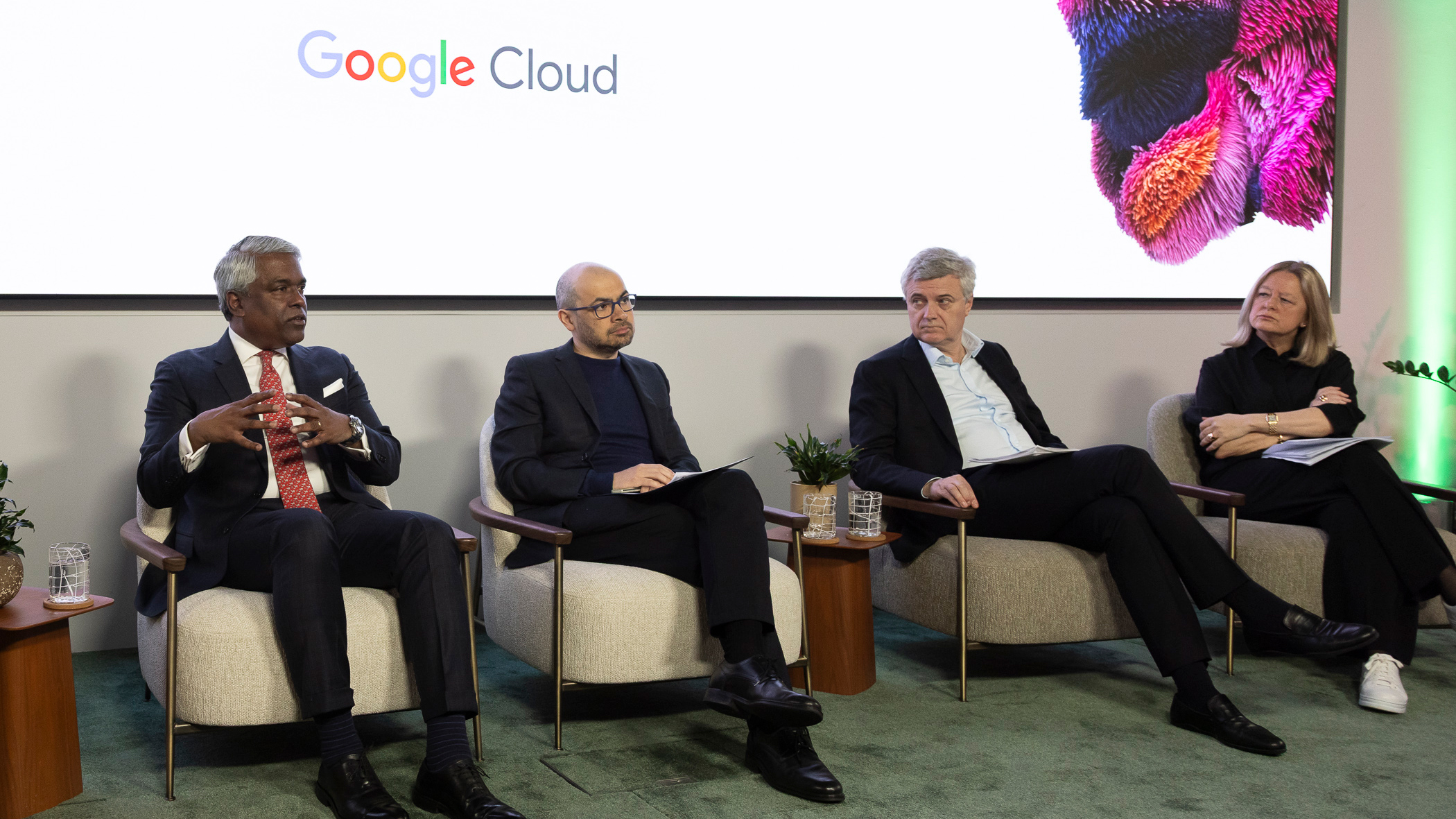 Google Cloud announces UK data residency for agentic AI services
Google Cloud announces UK data residency for agentic AI servicesNews With targeted cloud credits and skills workshops, Google Cloud hopes to underscore its UK infrastructure investment
By Rory Bathgate Published
-
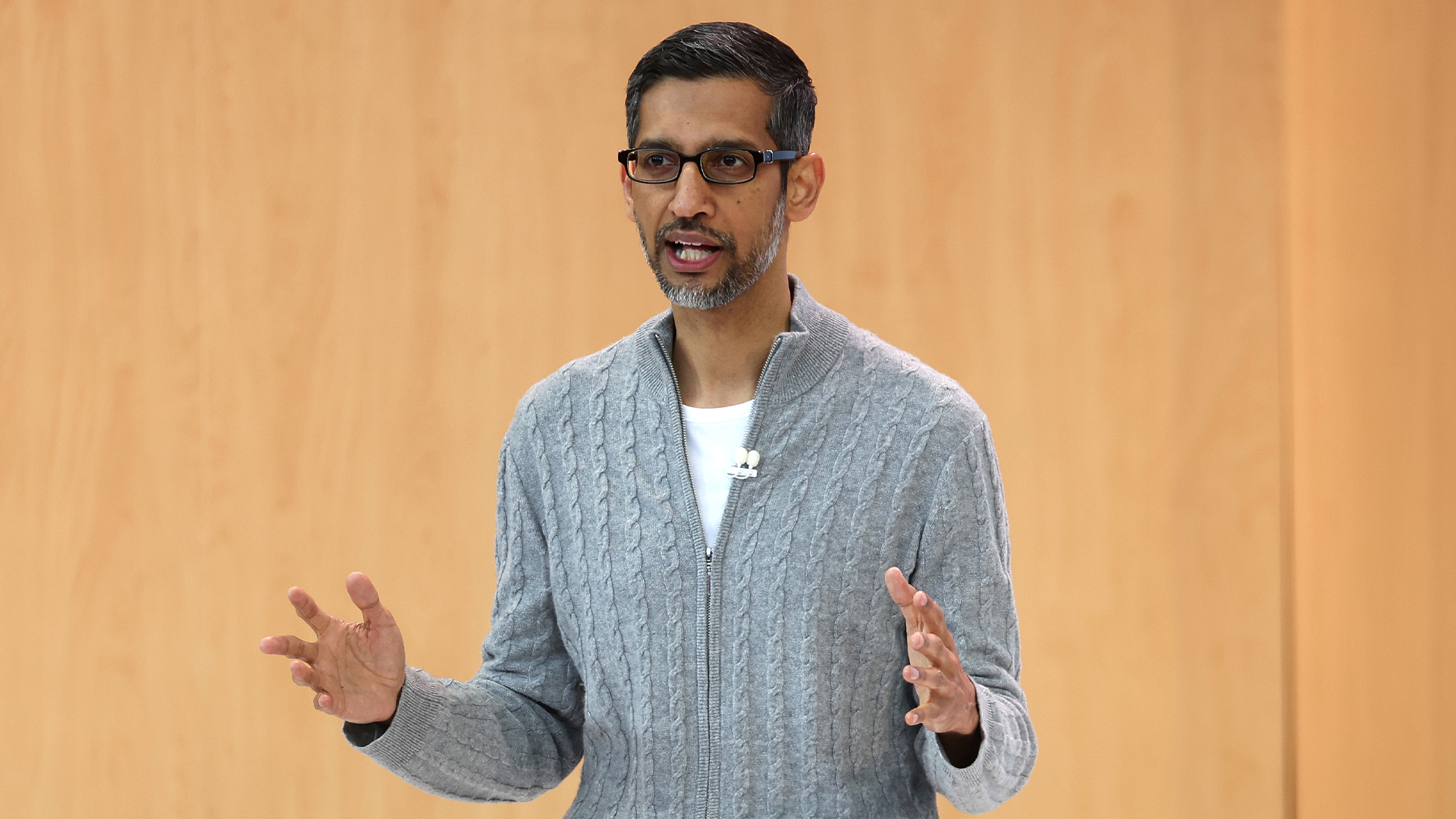 Google CEO Sundar Pichai says DeepSeek has done ‘good work’ showcasing AI model efficiency — and Gemini is going the same way too
Google CEO Sundar Pichai says DeepSeek has done ‘good work’ showcasing AI model efficiency — and Gemini is going the same way tooNews Google CEO Sundar Pichai hailed the DeepSeek model release as a step in the right direction for AI efficiency and accessibility.
By Nicole Kobie Published
-
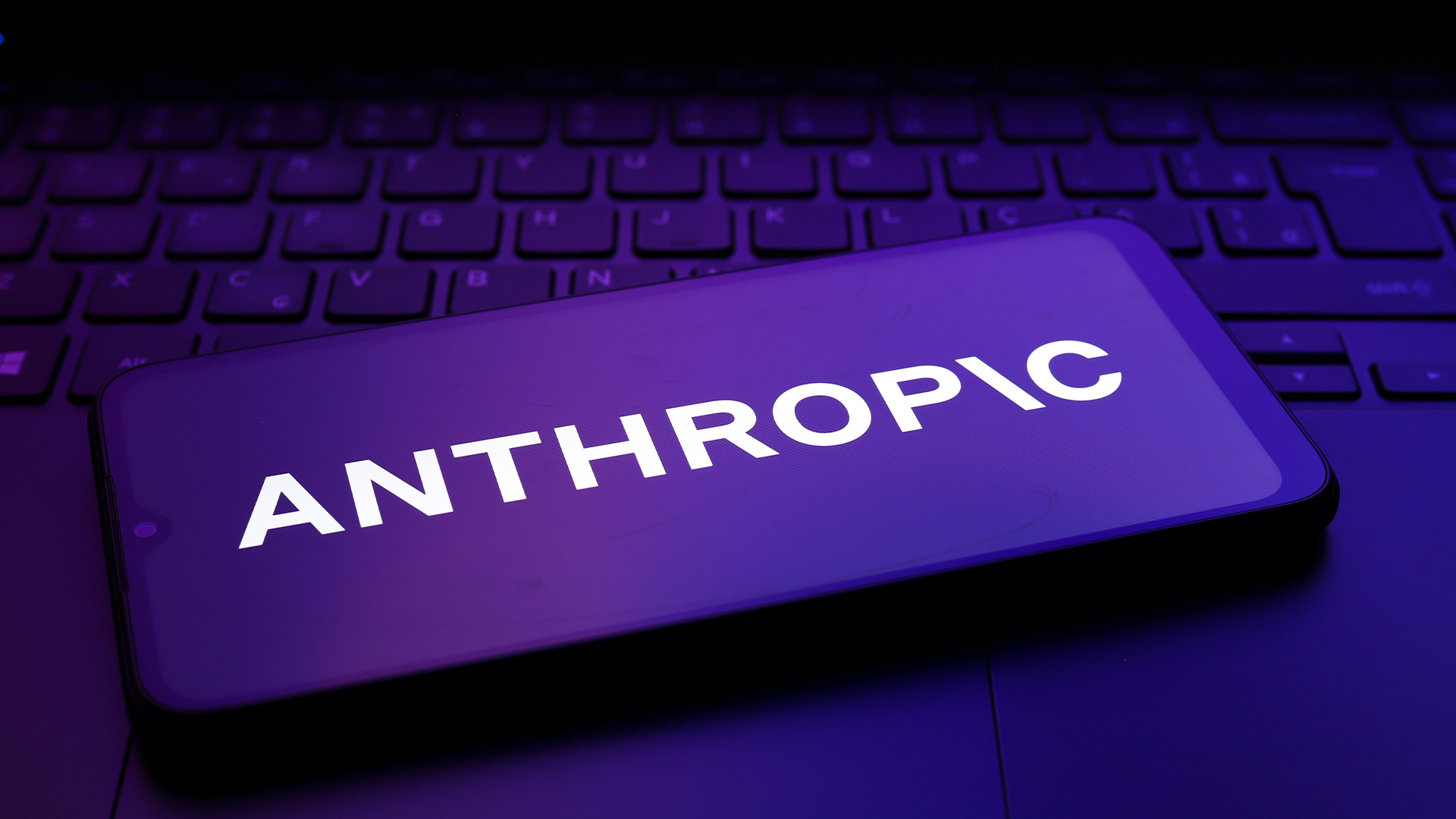 Google will invest a further $1 billion in AI startup Anthropic
Google will invest a further $1 billion in AI startup AnthropicNews This is the latest in a flurry of big tech investments for the AI startup
By George Fitzmaurice Published
-
 2024 was the year where AI finally started returning on investment
2024 was the year where AI finally started returning on investmentOpinion It's taken a while, but enterprises are finally beginning to see the benefits of AI
By Ross Kelly Last updated
-
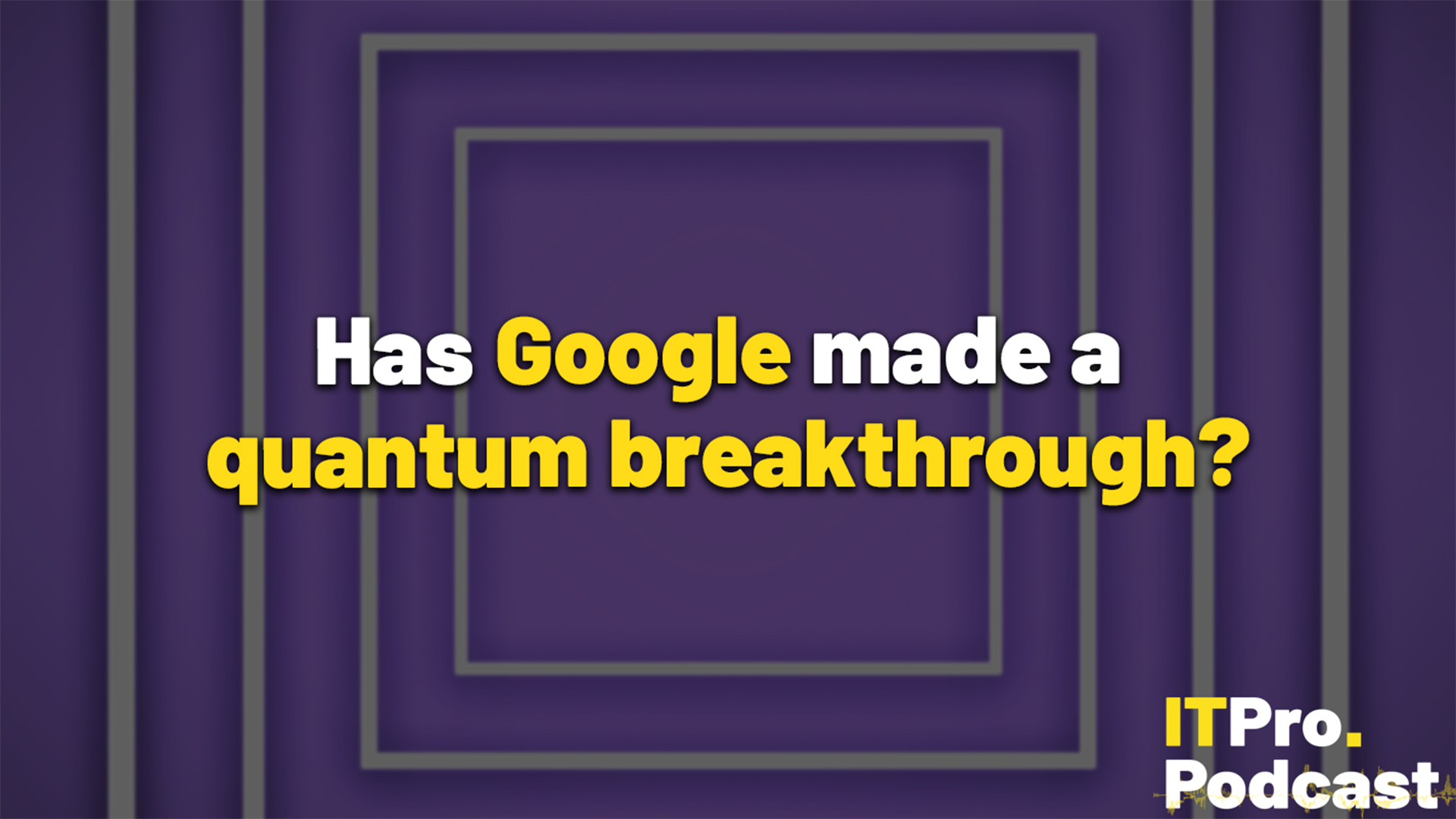 Has Google made a quantum breakthrough?
Has Google made a quantum breakthrough?ITPro Podcast The Willow chip is reported to run laps around even the fastest supercomputers – but the context for these benchmarks reveals only longer-term benefits
By Rory Bathgate Published